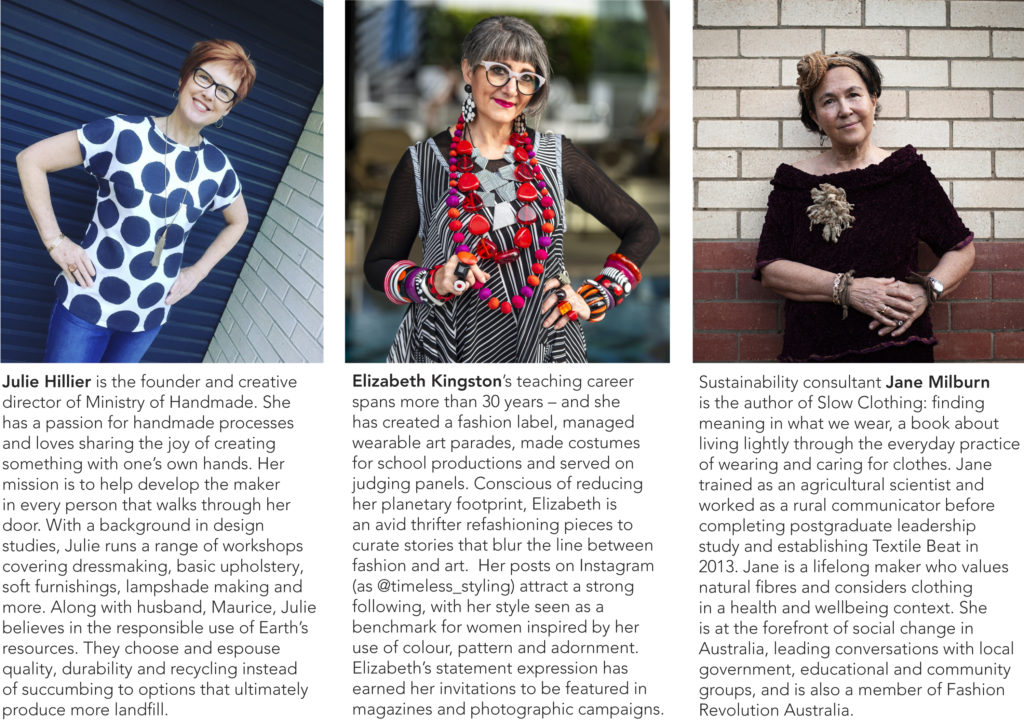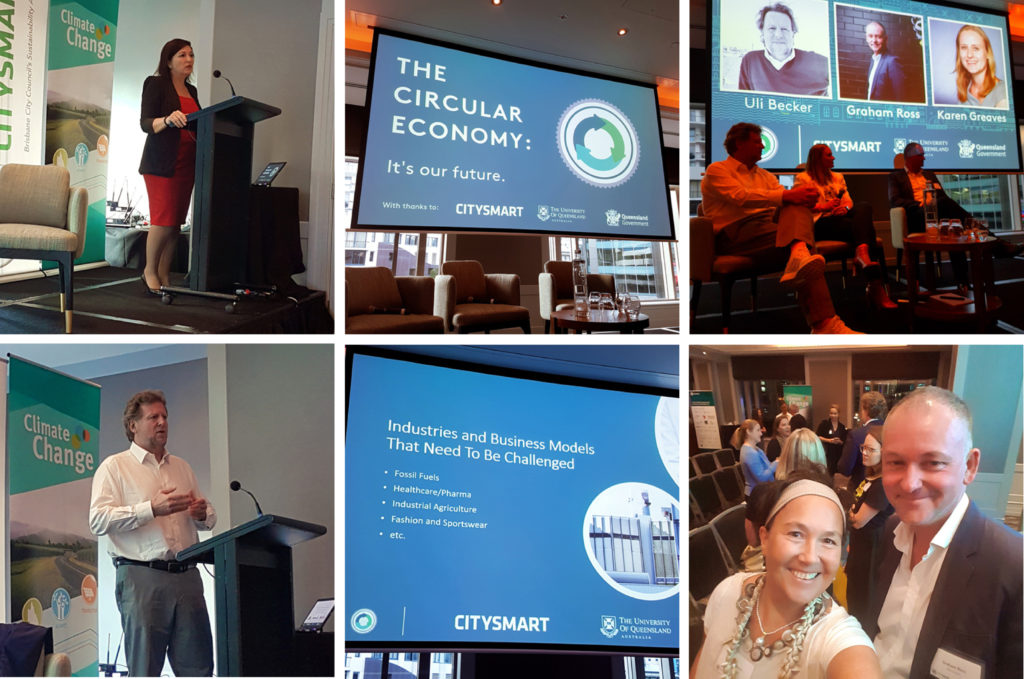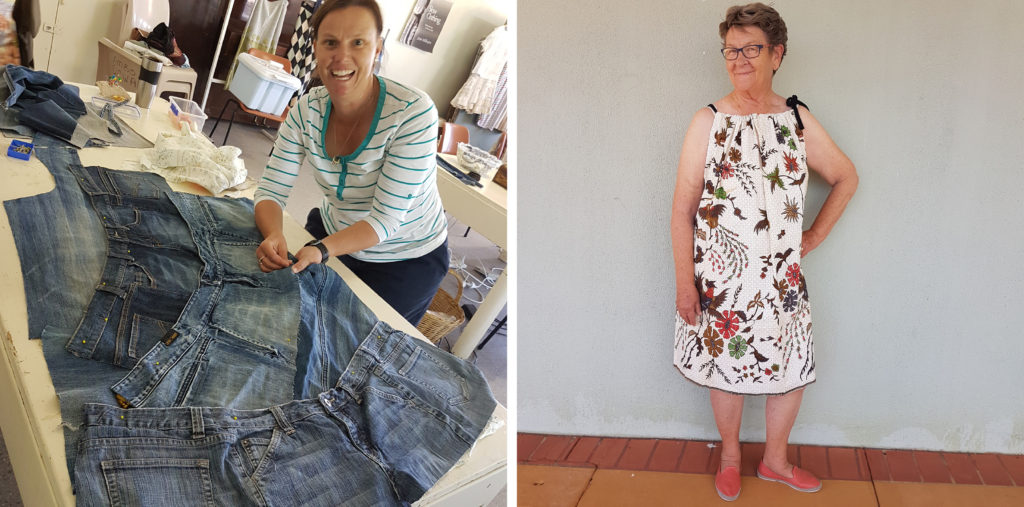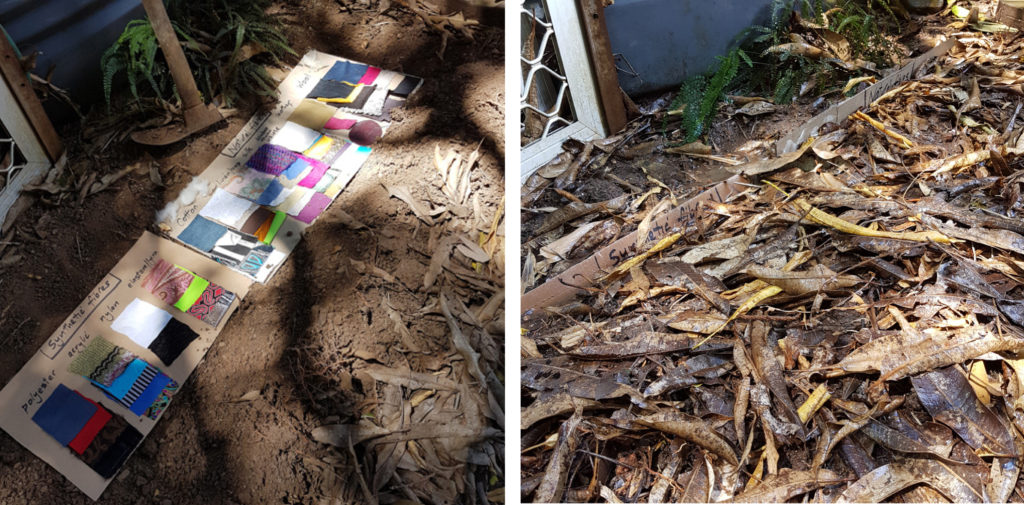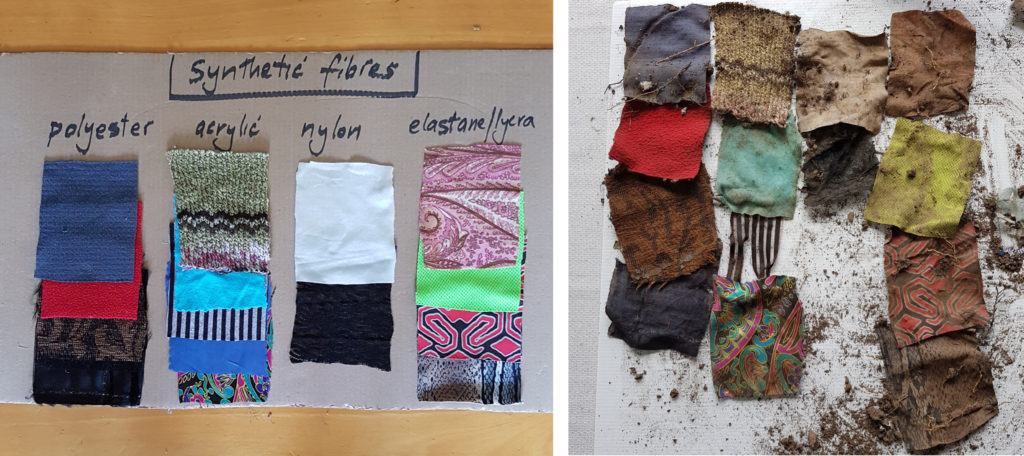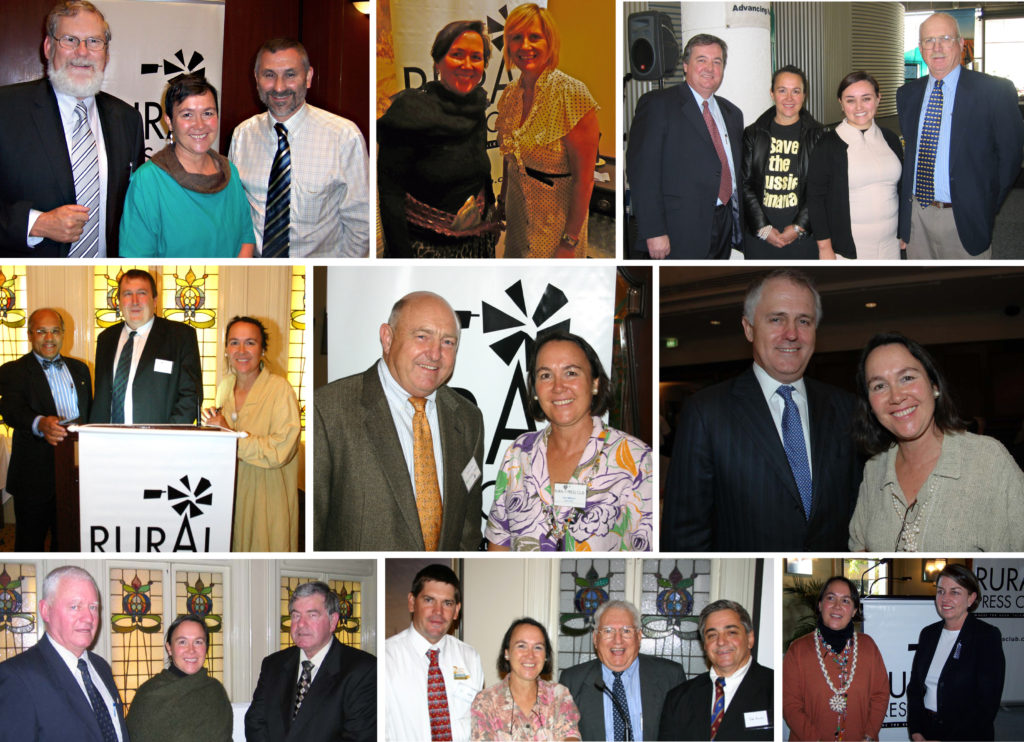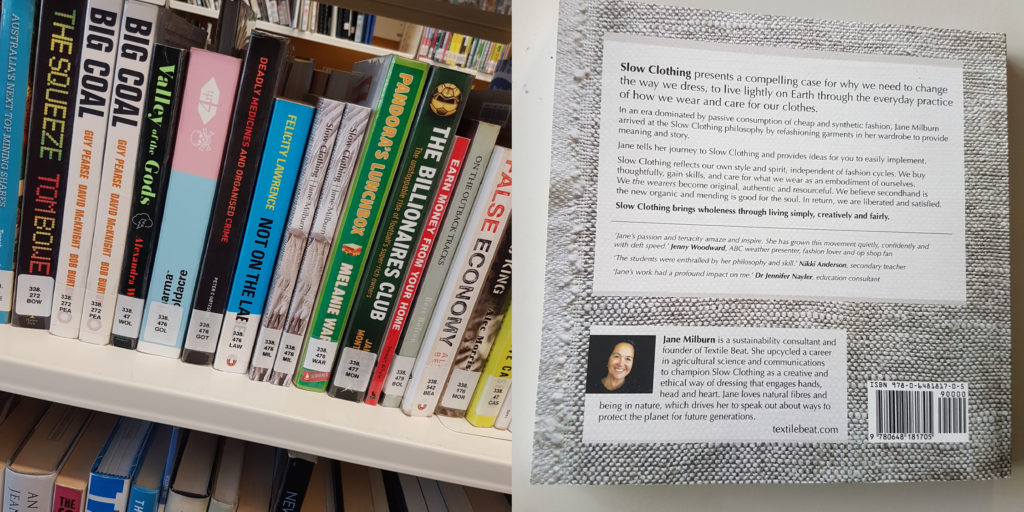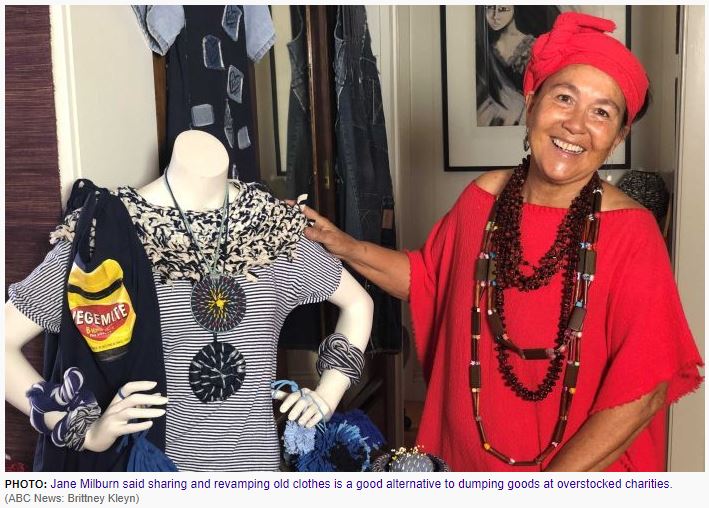Here’s the link to our On the Textile Beat April enews. Big shifts are happening as we have lived experience of climate change. Businesses and communities are responding by adapting approaches and behaviours. We are part of the Fashion Revolution and excited about our upcoming three-day event in Brisbane. See below for profiles of my colleagues Julie Hillier and Elizabeth Kingston who will be joining the discussion about localism on Sunday April 28. Also at bottom is the overall program – come join the conversation, workshops and markets from April 26-28.
Bold steps needed at this time
There are incredible changes happening in this period of time that will be important for the history of the human race, Queensland Government Minister Leeanne Enoch told The Circular Economy: it’s our future forum in Brisbane yesterday.
As Minister for Environment and the Great Barrier Reef, Minister for Science and Minister for the Arts, Ms Enoch said there are certain actions we have to take right now in the way we utilise materials, how we tackle climate change, and use energy and resources in everyday life.
“When I visited Wujal Wujal community in far north Queensland after recent weather events, the elders said there are no stories passed down the generations who have lived there to deal with rapid change in climate,” Ms Enoch said.
“We are a speck in time. There have been 3000 generations of people in this place, which is home to great natural gifts like the Great Barrier Reef and Daintree rainforests. But what is happening to our climate is new.
Bring on the fashion revolution
Brisbane slow fashion practitioners bring on the revolution
It is time for a Fashion Revolution – and Brisbane slow fashion practitioners are bringing together an immersive experience on April 26-28 to celebrate all that is local, sustainable and creative.
Brisbane makers and menders, movers and shakers – led by Naomi Huntsman, Jane Milburn, Leah Musch and Kim Bailey – are bringing you a three-day event exploring ways we can revolutionise the fashion system through our choices.
Upcycling is on trend
Who wants our waste, our rubbish and our cast-offs? Last year’s news was China rejecting our recycled materials, this year’s news is charity shops being so overwhelmed they called a temporary halt to donations. It is time for a serious rethink on stuff.
When we go camping or on holidays we realise how little stuff we really need. At home we may have wardrobes full of garments while studies show we only actively wear about 20 percent of them.
Marie Kondo, The Minimalists and others have turned stuff management into a profession as everyday people become overwhelmed with possessions that are ultimately of little value.
Synthetic fibres do not break down
An Australian backyard science experiment confirms synthetic clothing fibres do not breakdown in soil whereas within a year most natural fibres are returning to organic matter.
On 26 January, 2018, Textile Beat buried synthetic and natural fibre material swatches glued to cardboard by digging a shallow hole in relatively poor soil near a mango tree in a suburban garden in Brisbane. These were covered them with dirt and leaf litter, and occasionally watered (twice a month) until January 2019 when they were retrieved.
The material swatches were mostly remnants from Jane Milburn’s studio or from discarded clothing.
We were curious to confirm that synthetics are plastic-like and remain forever, while natural fibres return to nutrients and organic matter when broken down by microbes and insects in the soil.
We dug them up on January 15, 2019, and this is what we found.
Rural Press Club life member profile
In 1972, when 23 people paid $3 for lunch at the Pelican Restaurant in Fortitude Valley and listened to a veterinarian criticise the Queensland Government’s policy on restricting artificial insemination centres, the Rural Press Club of Queensland was born.
Almost half a century on, the Club’s events now attract hundreds of guests who still come to hear what’s happening in the bush and network with the people who matter in rural Australia.
While so many have voluntarily contributed countless hours to make the Rural Press Club the success it is today, past-president and Life Member Jane Milburn is one that we owe a debt of gratitude.
Slow Clothing in libraries
Peak stuff is here
Consumer culture is overwhelming us. New stuff arrives with Christmas gift traditions and Boxing Day sales, then we seek to shed old stuff and declutter for the New Year ahead. We take wisdom from the Minimalists and Marie Kondo and aim to move on stuff that isn’t bringing us joy. But there’s nowhere for it to go because almost everyone’s got too much stuff.
ABC News revealed shocking images of stuff dumped outside charity shops which are so overwhelmed by offerings that many have called time on donations for now. On top of that, there’s nowhere for our recycled stuff either.
Return to natural fibres
Growing concern about plastic in our environment sees natural-fibre industries poised for resurgence if they demonstrate eco-credentials to increasingly discerning customers.
Natural fibres like cotton and wool have been losing market share to synthetics for some time but the tide is turning, courtesy of the plastic legacy of main alternatives which are petroleum-derived fibres polyester and acrylic.
Currently two-thirds of new clothing is made from synthetic fibres and washing these clothes is significantly contributing to plastic pollution in oceans, with each polyester garment shedding thousands of microplastic particles adding up to tonnes of ocean plastic pollution over time.
Microplastic is showing up in seafood we eat, water we drink and air we breathe. The human health effects are still under study, although it is known these fibres carry chemical endocrine disruptors that influence hormone functions and chronic disease.
A recent report from the International Union of Concern for Nature confirmed primary microplastics in the oceans predominantly come from machine-washed synthetic textiles. Continue Reading →
Culture change is coming
The burying and burning secrets are out. A culture shift is happening as individuals and groups respond in various ways to reducing fashion waste and creating a more sustainable clothing culture. We all have capacity to change and influence behaviours when we believe in something and are comfortable to defy convention and conditioning.
Evidence continues to mount that we are overusing resources, indulging in wasteful consumption, polluting our atmosphere and oceans with CO2 and plastic. As individuals we can influence change through more responsible purchasing decisions, while we wait (sometimes in vain) for national governments to adopt sensible policy.
